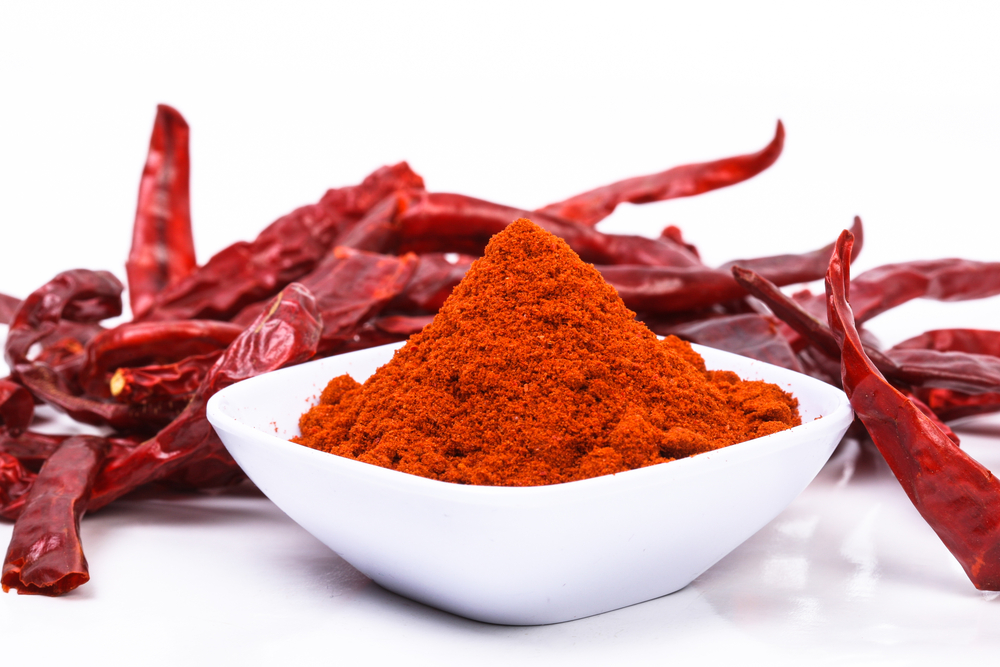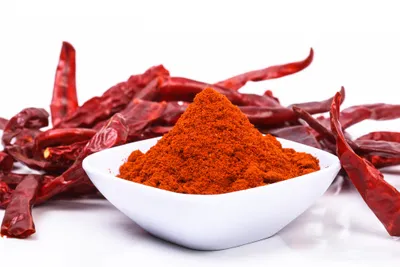Capsicum, or red chili peppers, has long been used for both culinary and therapeutic purposes. The herb, taken from the fruit of the Capsaicin plant, is the active compound in peppers that keeps things spicy. Many of the health benefits of capsicum sound somewhat mystical, however that doesn’t stop medical researchers, alternative health practitioners, and even celebrities from touting the many benefits of this hot substance…
1. Therapeutic Benefits of Capsicum
Therapeutically, capsicum can cover a lot of ground when it comes to purported medicinal benefits. Many claim capsicum stimulates blood flow and circulation—while others swear the compound can aid digestion.
Cayenne peppers have often been a part of home remedies, the capsicum within used to treat everything from fevers and congestion to colds and sinus issues. Some people even use capsicum as a topical muscle rub to relieve muscle and joint pain, helping with arthritis and sometimes even psoriasis.
2. Capsicum for Pain Relief
According to research from WebMD, certain forms of capsicum are currently being studied as effective pain treatments for stomach pain, toothache, and even as a topical pain treatment on skin ailments (i.e., shingles, nerve pain, and arthritis).
In preliminary studies published by the National Institutes of Health, capsaicin appears to effectively reduce pain when applied directly to the skin. The double blind study conducted on 70 patients with osteoarthritis showed that capsicum topical cream was a safe and effective treatment for inflammation and arthritis pain.
3. Capsicum and Weight Loss
You might have heard media reports that capsicum can help you lose weight. Indeed celebrities such as singer, Beyoncé, and supermodel, Gisele Bundchen, claim they use capsicum, or cayenne pepper, to slim down quick. But are these claims legit?
Studies by the journals PLos One and Bioscience, Biotechnology and Biochemistry link this spicy pepper to increased body thermogenesis (or heat production) as well as higher rates of lipid oxidation (increased metabolism).
4. Capsicum and Digestion
If you consider cayenne a powerful digestive aid—you may be spot on! A recent study from the Indian Institute of Chemical Technology, in Telangana, India, has linked green, red and yellow capsicums (found in bell peppers) to better digestion and more effective blood sugar control.
Study findings revealed that capsicum caused certain digestive enzymes (i.e. alpha- glucosidase) to maintain balanced blood sugar levels as it slowly broke down carbohydrates (i.e., glucose and pancreatic lipase) in the body. Better digestion ultimately leads to better nutrient absorption.
5. Incorporating Capsicum Into Your Diet
If you’re wondering about ways to incorporate more capsicum into your daily diet—look no further than chili and stews, seafood dishes, soups, pasta sauces, or even sprinkle chilies over pizza or chili powder over popcorn. Just be careful to test your spice tolerance before going too far!
Keep in mind that if you have you have any health condition that could interact with capsicum (i.e., ulcers, stomach or bowel issues, allergies, if you’re pregnant or nursing, or if you’re taking any other medications) we recommend talking to a doctor before considering using capsicum. Oh and you don’t want to get this stuff in your eyes or open wounds. It’ll hurt!








